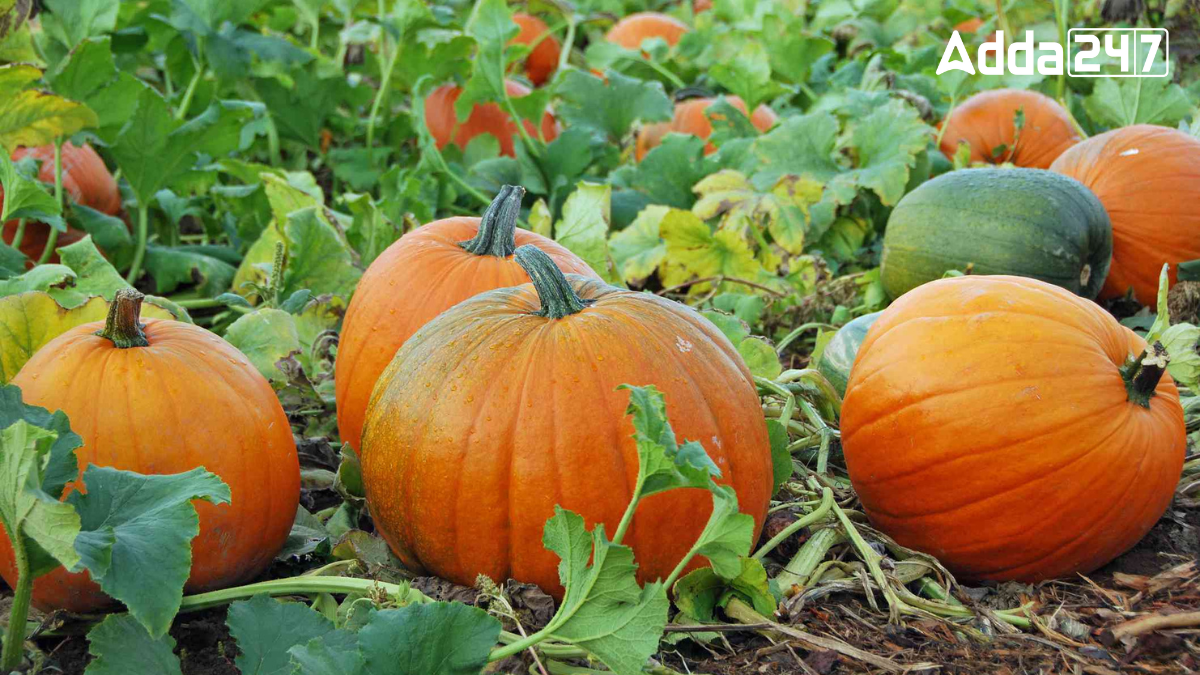India is a diverse country with many states growing different crops. Pumpkins, a popular vegetable, are used in many Indian dishes. The state that produces the most pumpkins in India is Madhya Pradesh. This northern state has fertile soil, suitable weather, and large farming areas, making it ideal for pumpkin cultivation. Let’s explore why Madhya Pradesh leads in pumpkin production.
Pumpkin Production in India
India is the second-largest pumpkin producer in the world, with an impressive production of 5 million tons. The country’s diverse climate and fertile soil contribute to its high pumpkin yield. States like Madhya Pradesh play a significant role in this production, ensuring that India remains a key player in the global pumpkin market.
Largest Pumpkin Producing State in India
Madhya Pradesh is the largest pumpkin-producing state in India, contributing significantly to the country’s pumpkin supply. With a production of 532.82 metric tons, it holds a 24.02% share of the national production. The state’s favorable climate and fertile soil make it an ideal region for pumpkin cultivation, ensuring it leads in pumpkin production across India.
Importance of Pumpkin Cultivation
Pumpkin cultivation holds significant agricultural importance in Madhya Pradesh. Pumpkins are not only grown for their edible fruits but also for their seeds, which are rich in nutrients and have medicinal properties. The versatility of pumpkins in culinary preparations, animal feed, and medicinal applications makes them a valuable crop for farmers.
Factors Contributing to Madhya Pradesh’s Success
Several factors contribute to Madhya Pradesh’s status as the largest pumpkin producing state in India:
- Favorable Climatic Conditions: Madhya Pradesh’s temperate climate, with adequate rainfall during monsoons and moderate winters, provides ideal conditions for pumpkin cultivation.
- Rich Soil: The fertile alluvial soil found in many parts of Madhya Pradesh supports the growth of pumpkins and enhances their yield and quality.
- Government Support: The state government’s initiatives and policies aimed at promoting agricultural productivity and supporting farmers through subsidies and infrastructure development have bolstered pumpkin cultivation.
Economic Impact
The cultivation of pumpkins has a positive economic impact on Madhya Pradesh. It provides employment opportunities for rural communities, enhances agricultural income, and contributes to the state’s economy through domestic consumption and export potential.
Challenges and Future Prospects
Despite its success, pumpkin cultivation in Madhya Pradesh faces challenges such as fluctuating market prices, pest attacks, and inadequate infrastructure in some regions. However, with ongoing research and development in agricultural practices and the government’s continued support, the future prospects for pumpkin cultivation in Madhya Pradesh remain promising.




 Which District of Haryana is known as th...
Which District of Haryana is known as th...
 Top-5 Richest Cities in India by GDP 202...
Top-5 Richest Cities in India by GDP 202...
 Which Country is known as the Land of Ch...
Which Country is known as the Land of Ch...








